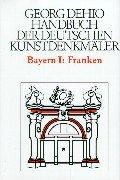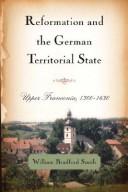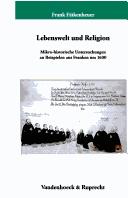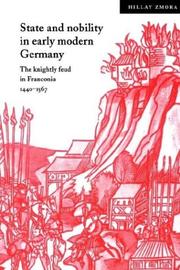| Listing 1 - 10 of 12 | << page >> |
Sort by
|

ISBN: 3465022262 9783465022268 Year: 1990 Volume: 47 Publisher: Frankfurt a.M. Klostermann
Abstract | Keywords | Export | Availability | Bookmark
 Loading...
Loading...Choose an application
- Reference Manager
- EndNote
- RefWorks (Direct export to RefWorks)
Conradines. --- Constitutional history --- Nobility --- Genealogy. --- Conradines --- -Constitutional history --- -Constitutional history, Modern --- Constitutional law --- Constitutions --- History --- Noble class --- Noble families --- Nobles (Social class) --- Peerage --- Upper class --- Aristocracy (Social class) --- Titles of honor and nobility --- Konradiner --- Genealogy --- Franconia (Germany) --- -Germany --- Franconia (Duchy) --- Franken (Germany) --- -Conradines. --- -Genealogy --- Germany --- History. --- Constitutional history - Holy Roman Empire. --- Nobility - Germany - Franconia - Genealogy.

ISBN: 3422030514 Year: 1999 Volume: *8 Publisher: München Deutscher Kunstverlag
Abstract | Keywords | Export | Availability | Bookmark
 Loading...
Loading...Choose an application
- Reference Manager
- EndNote
- RefWorks (Direct export to RefWorks)
Architecture --- Art --- Guidebooks --- Guides --- Guidebooks. --- Art, Occidental --- Art, Visual --- Art, Western (Western countries) --- Arts, Fine --- Arts, Visual --- Fine arts --- Iconography --- Occidental art --- Visual arts --- Western art (Western countries) --- Arts --- Aesthetics --- Architecture, Western (Western countries) --- Building design --- Buildings --- Construction --- Western architecture (Western countries) --- Building --- Design and construction --- Franconia (Germany) --- Franconia (Duchy) --- Franken (Germany) --- Art, Primitive --- Architecture, Primitive
Multi
ISBN: 382586491X 9783825864910 Year: 2003 Volume: 17 Publisher: Münster : Lit,
Abstract | Keywords | Export | Availability | Bookmark
 Loading...
Loading...Choose an application
- Reference Manager
- EndNote
- RefWorks (Direct export to RefWorks)
271.5-5 --- 091 <43> --- Jezuïeten: leiding; oversten --- Handschriftenkunde. Handschriftencatalogi--Duitsland voor 1945 en na 1989 --- Written communication --- Written communication. --- Writing --- History. --- Bavaria, Germany --- History --- Franken, Germany --- Germany --- 091 <43> Handschriftenkunde. Handschriftencatalogi--Duitsland voor 1945 en na 1989 --- 271.5-5 Jezuïeten: leiding; oversten
Book
ISBN: 3877170382 9783877170380 Year: 1986 Volume: 35 Publisher: Wurzburg Schöningh
Abstract | Keywords | Export | Availability | Bookmark
 Loading...
Loading...Choose an application
- Reference Manager
- EndNote
- RefWorks (Direct export to RefWorks)
Brotherhoods --- Social history --- History --- Franconia (Germany) --- Church history --- -Church history --- -Social history --- -Descriptive sociology --- Social conditions --- Sociology --- Christianity --- Ecclesiastical history --- History, Church --- History, Ecclesiastical --- Brotherhood --- Church societies --- Men --- Secret societies --- Societies --- -Franconia (Duchy) --- Franken (Germany) --- -History --- Middle Ages, 600-1500 --- Franconia (Duchy) --- Church history. --- Brotherhoods - Germany - Franconia - History --- Social history - Medieval, 500-1500 --- Franconia (Germany) - Church history

ISBN: 3515071091 Year: 1997 Publisher: Stuttgart : Franz Steiner,
Abstract | Keywords | Export | Availability | Bookmark
 Loading...
Loading...Choose an application
- Reference Manager
- EndNote
- RefWorks (Direct export to RefWorks)
338 <09> --- Nobility --- -Social structure --- -Organization, Social --- Social organization --- Anthropology --- Sociology --- Social institutions --- Noble class --- Noble families --- Nobles (Social class) --- Peerage --- Upper class --- Aristocracy (Social class) --- Titles of honor and nobility --- Economische geschiedenis --- History --- Franconia (Germany) --- -Franconia (Duchy) --- Franken (Germany) --- Social conditions --- Social structure --- History. --- -Economische geschiedenis --- -Social conditions --- 338 <09> Economische geschiedenis --- -338 <09> Economische geschiedenis --- Organization, Social --- Franconia (Duchy) --- Social conditions.

ISBN: 1283011255 9786613011251 1580467490 1580465668 158046274X Year: 2008 Publisher: Rochester, NY : University of Rochester Press,
Abstract | Keywords | Export | Availability | Bookmark
 Loading...
Loading...Choose an application
- Reference Manager
- EndNote
- RefWorks (Direct export to RefWorks)
Religious reform and the rise of the territorial state were the central features of early modern German history. Reformation and state-building, however, had a much longer history, beginning in the later Middle Ages and continuing through the early modern period. In this insightful new study, Smith explores the key relationship between the rise of the territorial state and religious upheavals of the age, centering his investigation on the diocese of Bamberg in upper Franconia. During the Reformation, the diocese was split in half: the parishes in the domains of the Franconian Hohenzollerns became Lutheran; those under the secular jurisdiction of the bishops of Bamberg remained Catholic. Drawing from a broad range of archival sources, Smith offers a compelling look at the origins and course of Catholic and Protestant reform. He examines the major religious crises of the period - the Great Schism, the Conciliar Movement, the Hussite War, the Peasant's War, the Thirty Years' War, and the Witch Craze - comparing their impact on the two states and showing how events played out on the local, territorial, and imperial stages. Careful analysis of the sources reveals how religious beliefs shaped politics in the emerging territorial principalities, explaining both the similarities as well as the profound differences between Lutheran and Catholic conceptions of the state. William Bradford Smith is professor of history at Oglethorpe University.
Reformation --- Church and state --- Christianity and state --- Separation of church and state --- State and church --- State, The --- Protestant Reformation --- Church history --- Counter-Reformation --- Protestantism --- History --- Franconia (Germany) --- Franconia (Duchy) --- Franken (Germany) --- Church history. --- History. --- Politics and government. --- Catholic reformation. --- German history. --- Protestant reformation. --- church and state. --- diocese. --- medieval Germany. --- middle ages. --- political science. --- religion and classics. --- religion and politics. --- religious reformation. --- religious studies.

ISBN: 3525351968 9783525351963 Year: 2004 Volume: 198 Publisher: Göttingen Vandenhoeck & Ruprecht
Abstract | Keywords | Export | Availability | Bookmark
 Loading...
Loading...Choose an application
- Reference Manager
- EndNote
- RefWorks (Direct export to RefWorks)
Christian church history --- History of Germany and Austria --- anno 1600-1699 --- anno 1500-1599 --- Baden-Württemberg --- Thuringia --- Bavaria --- Religion and sociology --- Religion and civilization --- Counter-Reformation --- Franconia (Germany) --- Religion --- 27 <43> "16" --- 27 <43 WURZBURG> --- Kerkgeschiedenis--Duitsland voor 1945 en na 1989--17e eeuw. Periode 1600-1699 --- Kerkgeschiedenis--Duitsland voor 1945 en na 1989--WURZBURG --- Catholics --- Religion and society --- Religious sociology --- Society and religion --- Sociology, Religious --- Sociology and religion --- Sociology of religion --- Sociology --- Civilization and religion --- Civilization --- Anti-Reformation --- Church history --- Church renewal --- Reformation --- Christians --- History --- Franconia (Duchy) --- Franken (Germany) --- Religion. --- Religion and sociology - Germany - Franconia --- Counter-Reformation - Germany - Franconia --- Franconia (Germany) - Religion

ISBN: 378681449X 9783786814498 Year: 1996 Volume: Bd. 449 Publisher: Husum Matthiesen
Abstract | Keywords | Export | Availability | Bookmark
 Loading...
Loading...Choose an application
- Reference Manager
- EndNote
- RefWorks (Direct export to RefWorks)
Power (Social sciences) --- Nobility --- Pouvoir (Sciences sociales) --- Noblesse --- History. --- Histoire --- Franconie --- Franconia (Germany) --- Franconie (Allemagne) --- Politics and government. --- Politique et gouvernement --- -Power (Social sciences) --- -Empowerment (Social sciences) --- Political power --- Exchange theory (Sociology) --- Political science --- Social sciences --- Sociology --- Consensus (Social sciences) --- Noble class --- Noble families --- Nobles (Social class) --- Peerage --- Upper class --- Aristocracy (Social class) --- Titles of honor and nobility --- History --- -Franconia (Germany) --- -Franconia (Duchy) --- Franken (Germany) --- Politics and government --- -History --- Empowerment (Social sciences) --- Franconia (Duchy) --- Power (Social sciences) - Germany - Franconia - History. --- Nobility - Germany - Franconia - History.
Book
ISBN: 3429013844 9783429013844 Year: 1994 Volume: 2 Publisher: Würzburg Echter
Abstract | Keywords | Export | Availability | Bookmark
 Loading...
Loading...Choose an application
- Reference Manager
- EndNote
- RefWorks (Direct export to RefWorks)
Cistercians --- Catholic Church --- Franconia (Germany) --- Würzburg Region (Germany) --- Church history --- 271.12 <43 FRANKEN> --- Cisterciënzers. Bernardijnen--Duitsland voor 1945 en na 1989--FRANKEN --- Catholic Church. Diocese of Wurzburg (Germany) --- -Zisterzienser --- White Monks --- Bernardines (Cistercian) --- Order of Cîteaux --- Cîteaux, Order of --- S. Ordo Cisterciensis --- Sacer Ordo Cisterciensis --- Ordo Cisterciensis --- Cisztercita Szerzetes --- Cisterciensi --- Řád cisterciáků --- Cisterciácký řád --- Cisterciens --- Trappists --- -271.12 <43 FRANKEN> --- 271.12 <43 FRANKEN> Cisterciënzers. Bernardijnen--Duitsland voor 1945 en na 1989--FRANKEN --- Catholic Church. --- Zisterzienser --- Würzburg (Germany : Diocese : Catholic Church) --- Franconia (Duchy) --- Franken (Germany) --- Church history. --- Franconia (Germany) - Church history --- Würzburg Region (Germany) - Church history

ISBN: 0521561795 052152265X 0511583222 0511004192 9780511004193 Year: 1997 Publisher: Cambridge : Cambridge University Press,
Abstract | Keywords | Export | Availability | Bookmark
 Loading...
Loading...Choose an application
- Reference Manager
- EndNote
- RefWorks (Direct export to RefWorks)
One of the most striking features of late medieval and early modern German was the countless feuds carried out by nobles. A constant threat to law and order, these feuds have commonly been regarded as a manifestation of the decline - economic and otherwise - of the nobility. This study shows that the nobility was not in crisis at this time. Nor were feuds merely banditry by another name. Rather, they were the result of an interplay between two fundamental processes: princely state-building, and social stratification among the nobility. Offering a new paradigm for understanding the German nobility, this book argues that the development of the state made proximity to princes the single most decisive factor in determining the fortune of a family. The result was a violent competition among the nobility over resources which were crucial to the princes. Feuds played a central role in this struggle that eventually led to the formation of an elite of noble families on whose power and wealth the princely state depended.
Feudal law
---
Knights and knighthood
---
Landfriede.
---
Nobility
---
History.
---
Franconia (Germany)
---
Politics and government.
---
-Knights and knighthood
---
-Landfriede
---
-#BIBC:ruil
| Listing 1 - 10 of 12 | << page >> |
Sort by
|

 Search
Search Feedback
Feedback About UniCat
About UniCat  Help
Help News
News